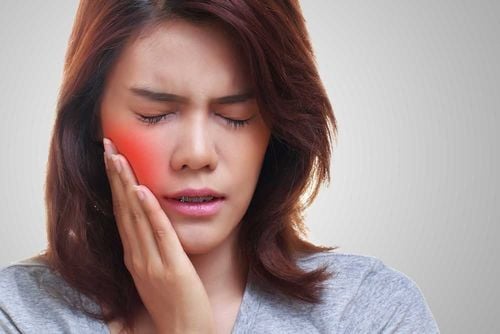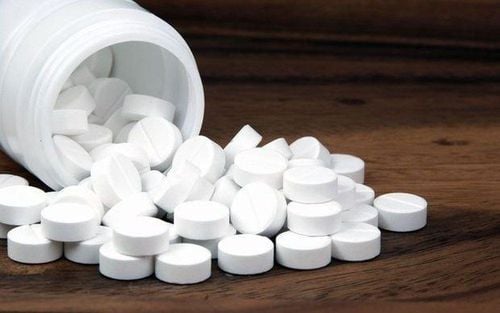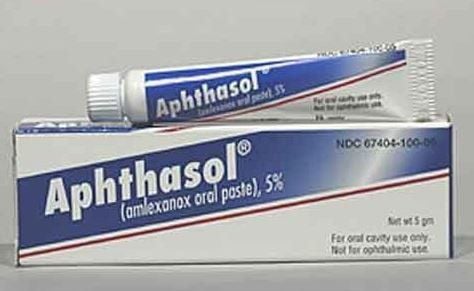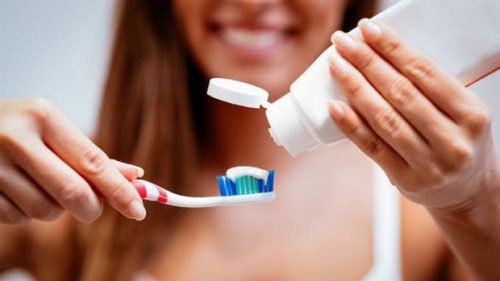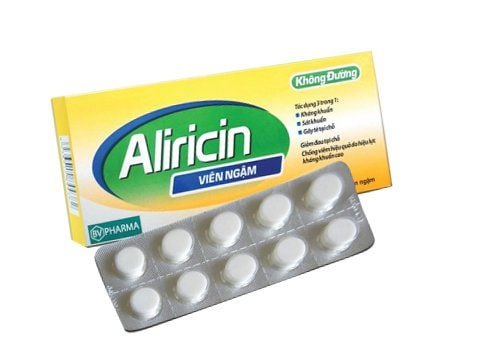This is an automatically translated article.
The article is professionally consulted by Doctor of Dental - Jaw - Facial - Department of Examination & Internal Medicine - Vinmec Hai Phong International General HospitalRegular dental care is an absolute necessity for everyone. This not only strengthens teeth, but also effectively prevents potential risks, such as gum disease, tooth decay or tooth wear.
1. Teach children the habit of taking care of their teeth from an early age
Several recent studies show that one in four young children will develop signs of tooth decay before they reach school age. Meanwhile, about half of children aged 12-15 are diagnosed with tooth decay.According to Caryn Solie, president of the American Dental Hygienist Association, dental care should begin as early as possible as soon as teething, usually six months or older. You can clean your baby's teeth with a clean damp cloth or use a soft brush suitable for baby teeth. When your child is 2 years old, you should encourage your child to brush their own teeth and maintain this habit regularly every day.
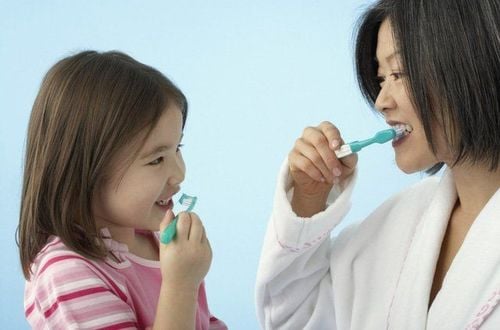
Hình thành cho trẻ thói quen đánh răng sớm sẽ ngăn ngừa sâu răng
2. Dental method of filling teeth
Usually, a person's permanent molars will appear around the age of 6. According to the Centers for Disease Control and Prevention, the application of dental fillings can significantly reduce tooth decay. This method often uses many different materials depending on the choice of each person, including:Amalgam fillings: This material is composed of a mixture of metal elements, such as: silver, zinc, mercury or copper. Because amalgams have good bearing capacity and ease of use, they are often used to restore injuries in teeth with major chewing function or teeth with large cavities. Filling with Cement - Silicate Cement: Has a color similar to real teeth and is easy to use, but the strength of this material is relatively poor, so they are often used to seal teeth.
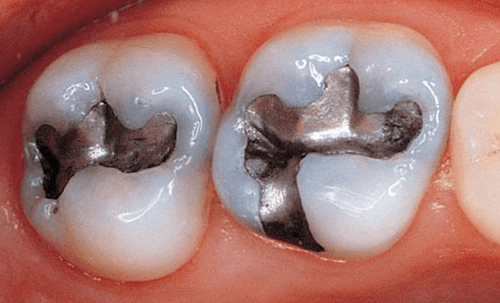
Hình ảnh trám răng bằng Amalgam
3. Add Fluoride
Experts in the field of oral health recommend that people add fluoride to strengthen tooth enamel, thereby helping to limit tooth decay. You can choose toothpaste and mouthwash products that contain fluoride. When tolerated in the right amounts, this substance offers many outstanding health benefits, but deficiency or excess levels of fluoride can lead to a number of potential risks, including include:When there is a lack of Fluoride : You can get some problems related to your teeth, such as tooth decay. In certain cases can cause osteoporosis. When there is an excess of Fluoride: Causes teeth to become contaminated with Fluor, which changes the color of the teeth, the appearance of unusual brown or white spots on the teeth, even causing tooth decay. For young children, it is important to note that children should use toothpastes containing Fluoride with a moderate concentration, ie no more than the size of a pea on a toothbrush.
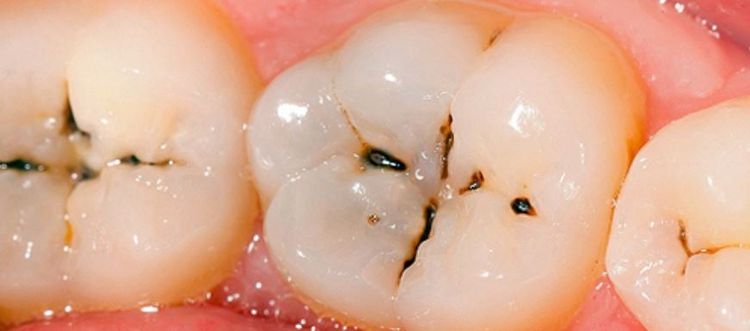
Sâu răng là biểu hiện của tình trạng thiếu Fluoride
4. Brush your teeth twice a day and floss
Gum disease and tooth decay are concerns not only for older adults but can also occur in younger people. According to statistics from the American Dental Hygienist Association (ADHA), about three-quarters of teenagers experience bleeding gums. To overcome this situation, you can apply some of the following measures:Should change the toothbrush about 3-4 times a year Teens with braces need to use a special toothbrush and other suitable oral hygiene devices. Older adults with arthritis or other problems that make it difficult to hold a toothbrush or floss may choose to use an electric toothbrush or a toothbrush with a handle. Regular dental check-ups.
5. Brush teeth or chew gum after meals
Besides brushing and flossing, rinsing with a mouthwash with antibacterial properties can effectively help prevent tooth decay and some gum problems. In addition, chewing sugar-free gum after meals can also protect teeth by increasing saliva production, which naturally washes away harmful bacteria and neutralizes acids.
Đánh răng sau bữa ăn giúp rửa trôi các vi khuẩn có hại
6. Use a tooth guard
Sports or recreational activities are very good for the overall health of people, but they pose a threat to the teeth. Certain sports activities such as skateboarding or rollerblading can lead to tooth injuries. To protect your teeth, you can buy mouthguards at reputable pharmacies. This type of device is usually self-adjusting and is softened with hot water to shape it to fit the mouth.7. Do not smoke or use smokeless tobacco
Tobacco is the leading cause of tooth staining and significantly increases the risk of gum disease and even oral cancer. Ideally, you should give up the habit of smoking conventional cigarettes and smokeless tobacco to prevent negative effects on oral health.8. Eat healthy
At any age, a healthy diet is essential for healthy teeth and gums. A balanced diet that includes nuts, whole grains, fruits, vegetables, and dairy products will provide the body with essential nutrients. Some studies have shown that omega-3 fats found in fish are great at reducing inflammation, thereby preventing the risk of gum disease.
Ăn nhiều rau xanh giúp răng luôn khỏe mạnh
9. Limit sugary foods
When bacteria in the mouth break down simple sugars, they produce acids that eat away at tooth enamel, facilitating the development of tooth decay. Sugary drinks, including soft drinks or juices, pose a big threat because they are so popular with many people, which can increase acidity over a long period of time.In addition, carbonated drinks are no exception, causing even worse consequences because the carbonates in them have the ability to increase acidity. Gummies are another culprit, because they can stick to tooth surfaces if not cleaned properly.
10. Regular dental visits
Most experts recommend getting a dental check-up about every six months, and more often if you're having problems with your teeth, such as gum disease. During the exam, your dentist will remove the plaque that has built up on your teeth that you can't get rid of, and look for signs of tooth decay. Regular dental checkups also help detect the following problems early:Early signs of oral cancer: About nine out of ten cases of oral cancer can be completely cured if caught early. If not detected in time, cancer can spread to other parts of the body and make treatment more difficult. Bruxism: Bruxism can be caused by excessive stress or anxiety. Over time, it can wear down the biting surfaces of your teeth, making them more susceptible to decay. If you have signs of bruxism, your doctor will often recommend using a mouth guard that is worn at night to prevent teeth grinding.
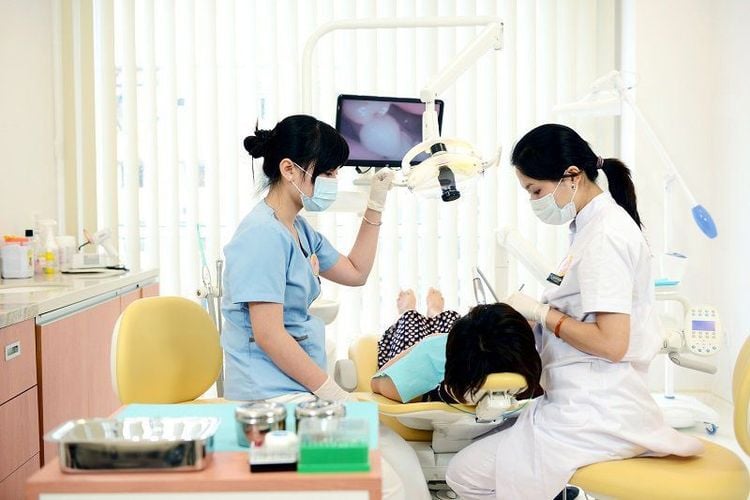
Bạn nên khám răng định kì nhằm phát hiện các bệnh lý về răng
Please dial HOTLINE for more information or register for an appointment HERE. Download MyVinmec app to make appointments faster and to manage your bookings easily.
Reference source: webmd.com




